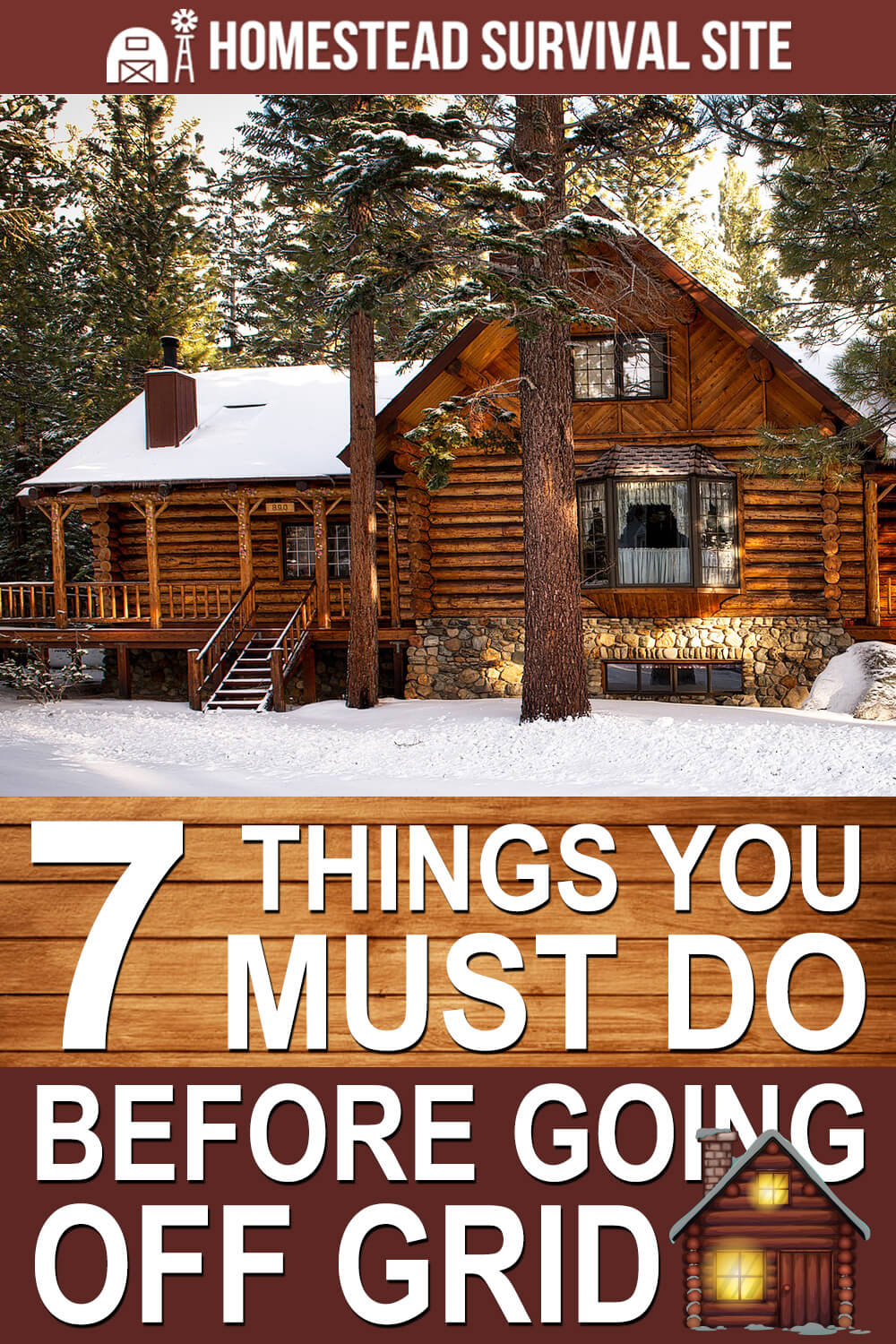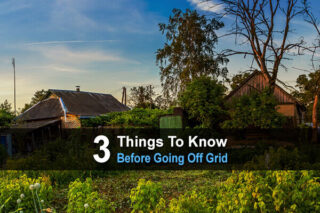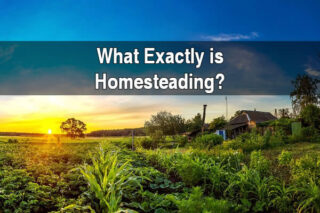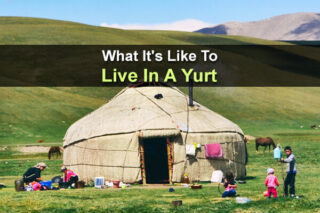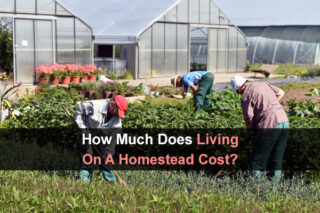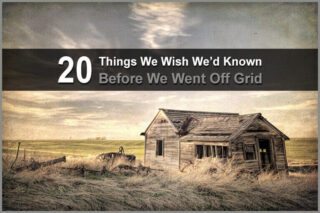Estimated reading time: 5 minutes
Are you looking for more independence? More of a connection with nature? Or are you trying to be more sustainable? Whatever your reason is for going off the grid, you'll find a fantastic new way to live life by taking the chance.
Going off grid offers a variety of benefits including lower stress and anxiety, a smaller environmental footprint, and overall better health. If you’ve been considering going off the grid, there are a few things you’ll need to do in order to prepare.
Want to save this post for later? Click Here to Pin It On Pinterest!
1. Be Realistic
As you plan what is essentially your new life, you should be realistic about what you can feasibly do. Some things may be out of your control or not within your available resources. You won't be able to jet off to the convenience store whenever you need a quick snack, and raising food crops takes patience.
Do your research, too — other people's stories provide insight. Read about the pros and cons, the best and the worst times. Others' experiences will teach you helpful tips before starting your journey.
2. Be Prepared for Adversity
While going off the grid is not as dangerous as some believe it is, you should still prepare yourself for bad times. Things like location, weather and health risks all pose potential threats to your homesteading.
Depending on where you plan to live, the weather could be moderate year-round, or you could get all four seasons. Everyone knows winters are cold and summers are hot, but the temperatures can feel worse when experiencing them unprepared.
Inclement weather and hazardous surroundings can lead to injuries, illnesses or worse. Having multiple first aid kits in different locations is a proactive step. You should also buy some first aid books for self-education. However, realizing when you might need assistance from a doctor or hospital is critical, too.
3. Factor in Money
Visiting the doctor costs money. So does procuring materials and building your homestead. You'll also need to pay for tools and resources that require year-round maintenance, like solar panels or gardening equipment.
Will you own or rent the land you build on? Having a steady income will play a factor in your off-the-grid experience. And remember, mineral rights differ from surface rights if you plan on selling resources.
Your water and septic systems, along with power and energy, are additional expenses that come with this off-grid lifestyle. Be prepared to meet those price tags.
4. Pinpoint Water Sources
A fundamental rule you need to know is that water does not run uphill. Though this may be obvious, some people forget it. You should build your homestead in proximity to a freshwater source. In going off the grid, you'll find various water sources available, but you'll need to know how to utilize them first.
Also, reuse water. Part of sustainable living is to reduce, reuse and recycle. Reusing water helps lower your water footprint and wastes fewer resources.
5. Consider Your Energy Sources
One of the reasons off-the-grid living is so sustainable is because of its limited energy usage. But, you'll still need a power source if you aren't planning to live without electricity.
Many homesteaders recommend solar PV or wind turbines, although many prefer solar due to its more straightforward installation process. Hydropower is another viable option if you live near a running body of water.
6. Know Your Food
Just as you should have a first aid book, you should also invest in books about the plants and foods in your native environment. Because you'll be living off the land, you'll need to familiarize yourself with viable food sources.
Never guess! You need to make sure what you're eating is perfectly safe. You don't want to pick mushrooms for dinner and find they're inedible or poisonous.
7. Learn About the Community and Wildlife
You'll see many fascinating ecosystems, cultural communities and types of wildlife as you go off the grid. But be careful of any dangerous animals. Bunnies don't pose a threat, but a bear that finds your trash most certainly will!
There are great places to live off-grid all over the world. Remember to be respectful of the communities around you. Part of this process involves getting closer to nature, so respect and protect the environment you live in and the people you encounter.
The First Steps to Homestead Living
Good things come to those who wait. Though you may be eager to jump right into your new life, have patience. Your first steps involve hitting the drawing board. Plan, plan, plan. You can't be too prepared for a decision like this. You'll need to know every detail of when, where and how you're going to enact your new lifestyle.
Read up on relevant materials, establish your game plan and buy the resources you'll need. Take it step-by-step and you'll find yourself living off the grid with ease.
Like this post? Don't Forget to Pin It On Pinterest!



